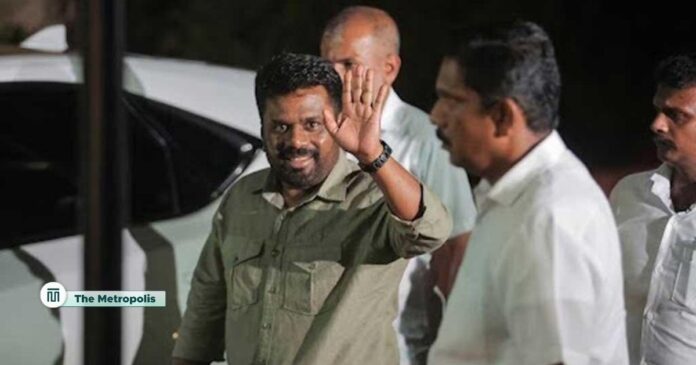Sri Lanka elected Anura Kumara Dissanayake, a Marxist-leaning candidate, as its new president on Sunday, signaling public trust in the 55-year-old’s promise to tackle corruption and strengthen the country’s fragile economic recovery after its worst financial crisis in decades.
Dissanayake, who lacks the political dynasty of some of his presidential election rivals, led the race from the start, ultimately defeating incumbent President Ranil Wickremesinghe and opposition leader Sajith Premadasa to become Sri Lanka’s 10th president.
The election also served as a referendum on Wickremesinghe, who had overseen the debt-ridden nation’s delicate recovery following its 2022 economic collapse. However, the austerity measures central to this recovery hindered his re-election prospects, as he finished third with just 17 percent of the vote.
Dissanayake secured 5.6 million votes, or 42.3 percent, a significant leap from the 3 percent he garnered in the 2019 presidential election. Premadasa came in second with 32.8 percent, following the first round of counting.
This election marked the first time in Sri Lankan history that a presidential race was decided by a second round of counting, as no candidate secured the required 50 percent of votes in the initial round to win outright.



